Harold Halibut Review
PlayStation 5
Open your heart to an equally touching and comedic sci-fi narrative with Harold Halibut.
Reviewed by AndresPlays on Apr 14, 2024
When was the last time you truly felt something? When was the last time a video game truly moved you? When you were not distracted looking at your phone at each cutscene, but actually enthralled by the narrative, in awe of its distinctive art style. These questions resonate deeply as I reflect on my experience with Harold Halibut, a narrative adventure that transcends mere entertainment to become a profound journey of self-discovery.
For over a decade, Slow Bros., the team behind Harold Halibut poured their hearts into crafting a game that blurs the lines between art and interaction. Since I dove into its fully realized original world, I was captivated by its peculiar sense of humor, inventive science fiction narrative, and imaginative music. But it's the heartfelt story of Harold, a down-in-the-dumps handyman navigating life in an aquatic station controlled by the omnipresent All Water corporation, that is the binding that holds everything together.
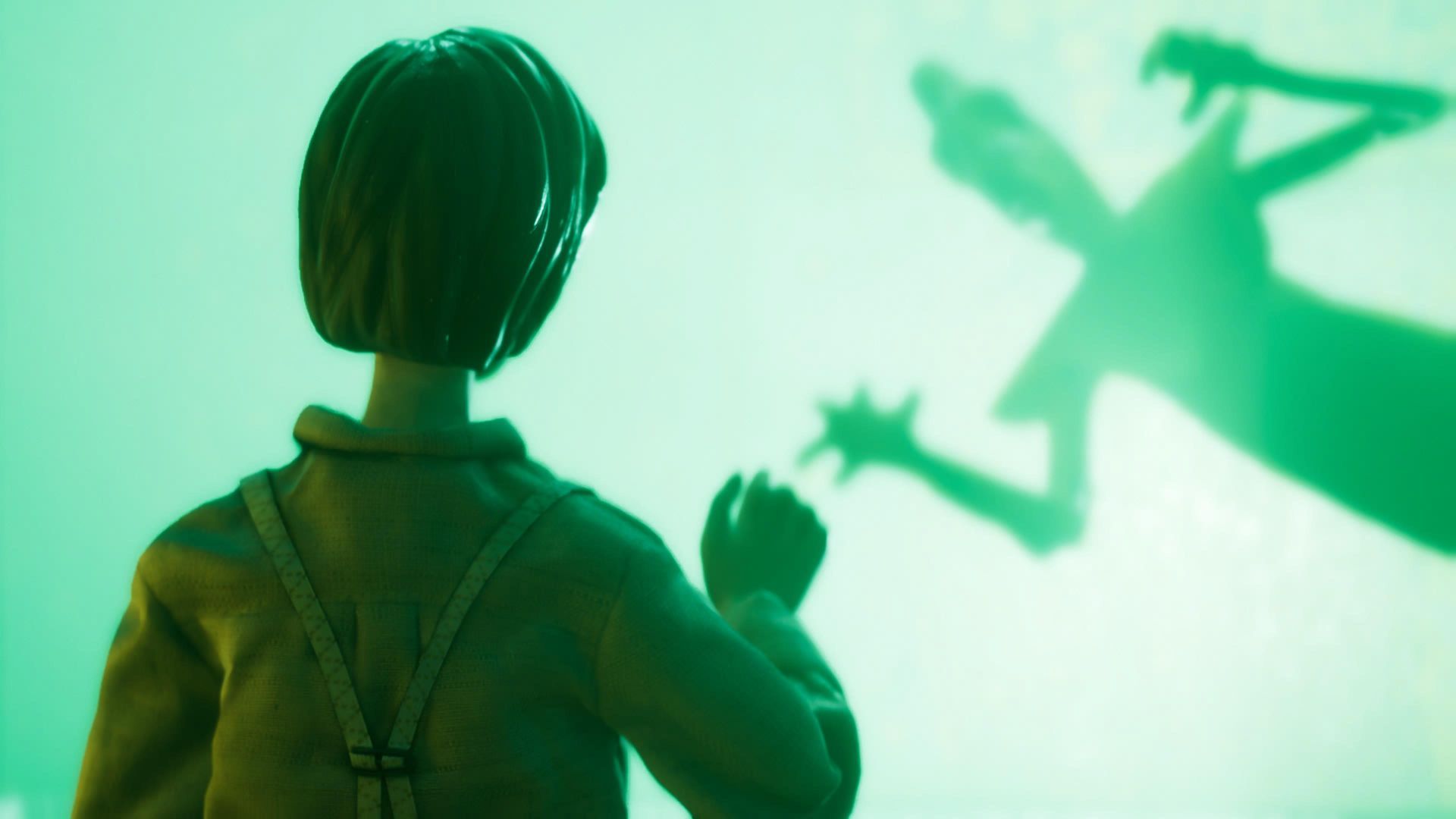
It all starts with the art style. Boasting one-of-a-kind stop motion aesthetics, the meticulous attention to detail in its handmade claymation and the influences of filmmakers like Wes Anderson are evident in every frame. The fluid animations, inspired artistic choices, and whimsical ensemble transports players to a world that feels fantastical. The dedication of the developers to every single thing seen on the screen created in real life before being digitized for the game is palpable.
Harold Halibut is set in an ark-like spaceship underwater on an unspecified planet far from Earth, presumably in what are the last remnants of civilization are struggling to find their footing in this bleak scenario. Known as the FEDORA 1, this aquatic station is connected by a series of tubes in which its inhabitants can move around the many districts run by the aforementioned corporation All Water.
Now, the character of Harold Halibut is not a difficult person to decipher. He is an everyman in a world of scientists, a person trying to be useful, someone longing to find his place in the universe. Just like the sketches he draws of strange situations that usually happen to him, there are many nuances to his initially one-sided demeanor. Running up and down with his trusty Compu-Bud, a PDA, reminding him of his To-Do list, his movement feels just weighty enough to easily maneuver across the ship.
The type of random, quirky situations that surprise the protagonist each day is up to you to discover. Having the bickering of the scientists debating philosophy, science, and their personal views on matters with lively writing or helping kids plan a heist, all side content thoughtfully adds to the narrative. Suffice it to say, all of these unexpected circumstances lead to silly exchanges between the well-developed characters that make it feel like you are witnessing a lived-in world.
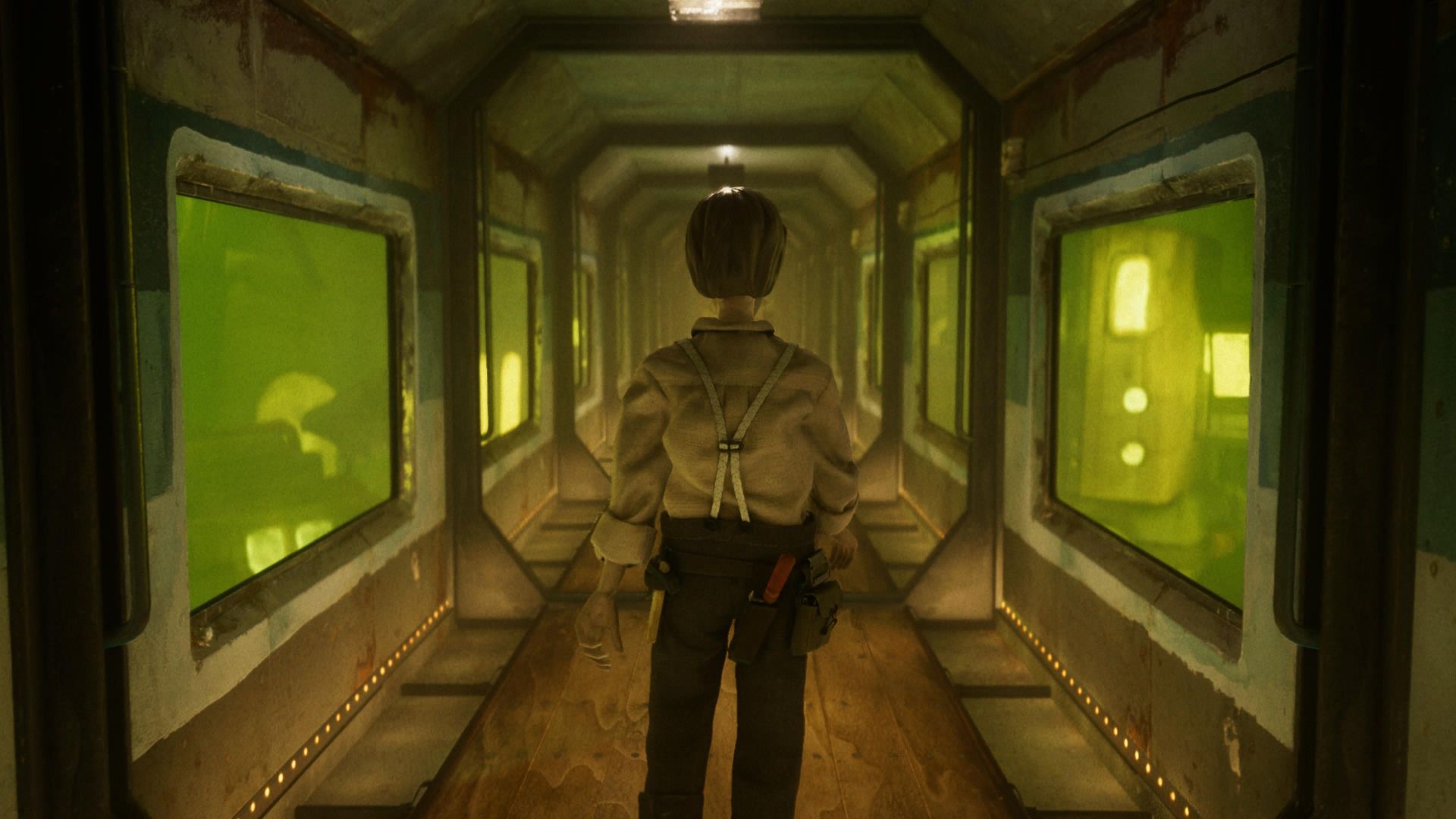
Every character has a secret, and not everything is part of the main story. You are free to wander the districts of each area. In Harold's exploration, do not be surprised to find some strangely funny interactions with all kinds of personalities, like the PA announcer to kids trying out their poetry in front of a crowd of overzealous parents. The inhabitants of the Fedora are as diverse as they come. From Harold's boss, Mareaux, to the enigmatic Lightkeepers leaving cryptic messages, each character is instantly recognizable.
The Lightkeepers, a group clearly inspired by anti-fascist groups against tyranny throughout history, such as the aesthetic of Che Guevara, or the political anthem "Bella Ciao" serve as an opposed enemy of the All Water corporation. There is trouble brewing below the seemingly everyday cycle and it's only up to rebels who stand up against them, even if there is a hilarious spin on the group, as is per usual on Harold Halibut.
There is an underlying focus of everyone living in the Fedora's lives revolving around art. You can casually watch a live performance, adding to the delightfully entertaining plethora of artistic endeavors that the everyday creative people of Fedora pursue. Some people can't stop reading about politics, others about fictional adventures, and some simply about historical facts that led the citizens of this underwater ship to be informed of how they got here.
Each side activity delves deep into what each of these characters thrust into this extremely bizarre situation cares about. From the four brothers who used to work at the same All Water corporation to the easy-to-recognize Captain Zoya having doubts about his usefulness in the ship and the company behind it all. There are all sorts of ethical concerns when thinking of how a corporation that runs a society as a whole such as All Water has its interests before that of the masses, whose intentions are shown in true sarcastic fashion.
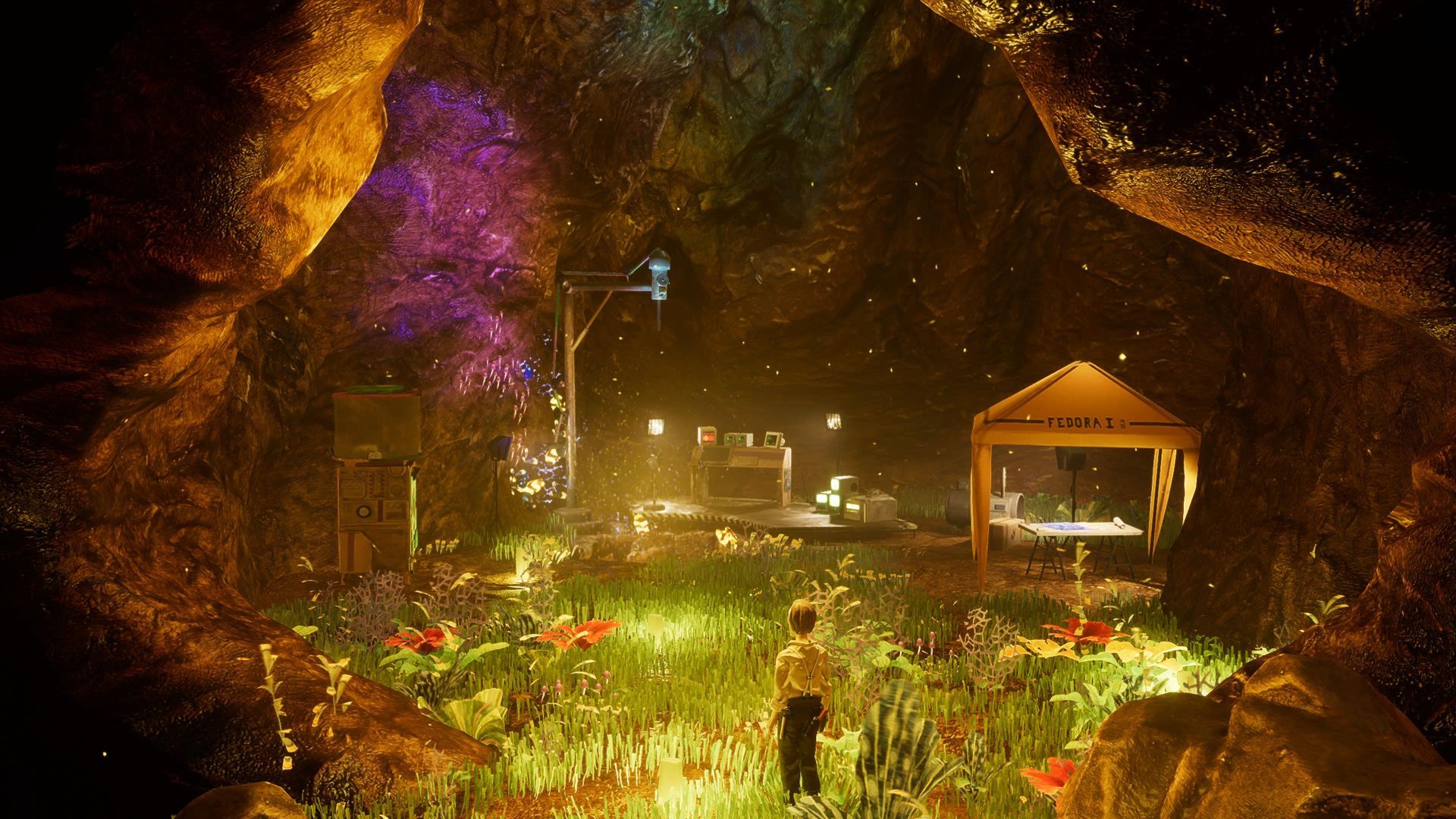
One of the game's greatest strengths is its commitment to world-building. As you explore the various districts of the aquatic station every day, it’s hard not to get drawn into the lives of its inhabitants. Whether it is the evolving plaza of the Agora Arcades or the kafkian levels of absurdity in the Post Office, every corner of the station felt alive with purpose.
You can see the plaza of the Agora Arcades evolving with the passing of each chapter, with an example being the food vendor of FishFishFish Hut increasingly annoyed at new restaurants that pop up when in the beginning he would be the only option for passersby to buy food. Considering the circumstances and how lazy the vendor was at first this becomes rewarding, as these interactions are not part of the main plot but give context to the everyday lives of people in the Fedora.
At some point, Harold has to reach out to his previous partner. The way he reacts is so endearing. Who hasn't dreaded having to meet an ex, especially when it is needed to do so for work purposes? His insecurities come out in full swing when the way he tries to play it cool completely backfires and lends itself to one of the funniest interactions within the game. It is never easy to control one's emotions, especially if there was a loving relationship that soured due to Harold’s shortcomings.
Or reading strangers' letters with the postman. To learn about these explorers' plight gives a rich insight into their current predicament. To know how they had to travel through a myriad of planets before arriving on Fedora, their current home on such a foreign planet. This brief letter reading makes these people feel alive. They have fought to get here with hope for the future, however uncertain that may be.
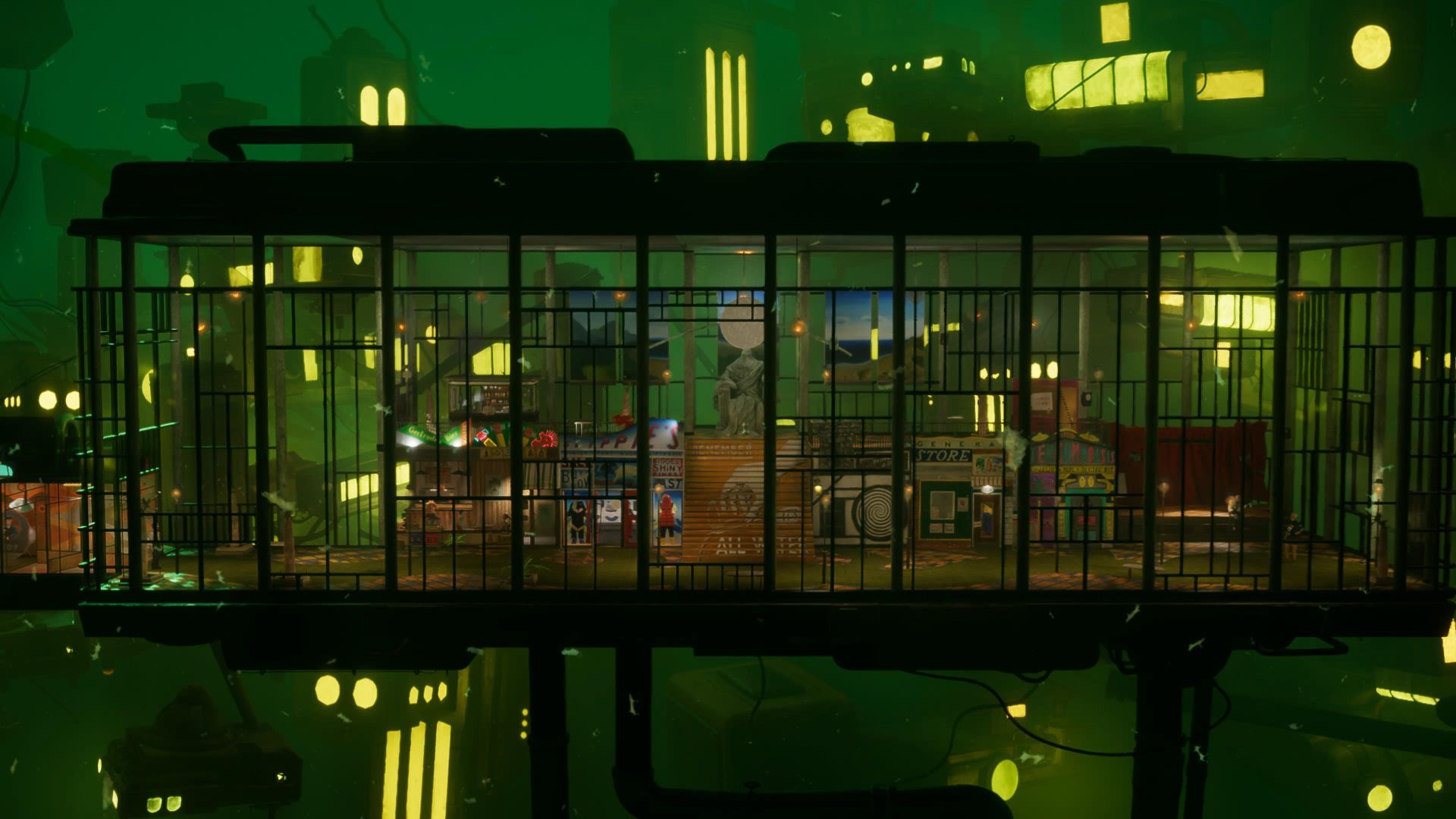
Then there's the soundtrack. With licensed tracks from modern artists such as BADBADNOTGOOD and classics from Chopin’s repertoire to the deftly created original soundtrack, every sound in Harold Halibut is carefully curated to enhance the experience. Whether you are exploring for the first time a new civilization or simply enjoying a quiet moment of reflection, the music always strikes the perfect chord.
At certain points in the story, there are montages of Harold doing an array of activities, like developing their friendship, working on a certain science project, or simply showing how life happens in the FEDORA 1. Once the countdown to the deadline of the brief timeframe they have to solve a world-ending issue is unlocked, these moments end up taking off a chunk of days, or even weeks from the calendar. After you are in control again, a barrage of messages from several characters in your datapad is always a fun read.
By the time Harold Halibut eventually meets an alien lifeform whom he connects with, a few things simultaneously happen. He realizes he is more alone than he initially thought, enjoys being more open with his newfound friend, and that there is more to life than he initially thought. This is to say, what true friendship can do for someone, which is to change your worldview for the better, told in a heartfelt way.
The juxtaposition of Harold Halibut's extreme willingness to help but an equally clueless attitude when interacting on a day-to-day basis with scientists lends itself to some heart-wrenching interactions. When all he means is to do well but does not know how to, even if it's well-intentioned, his decisions negatively affect everyone around him, and gets heavily scolded, which leaves our protagonist full of self-doubt.
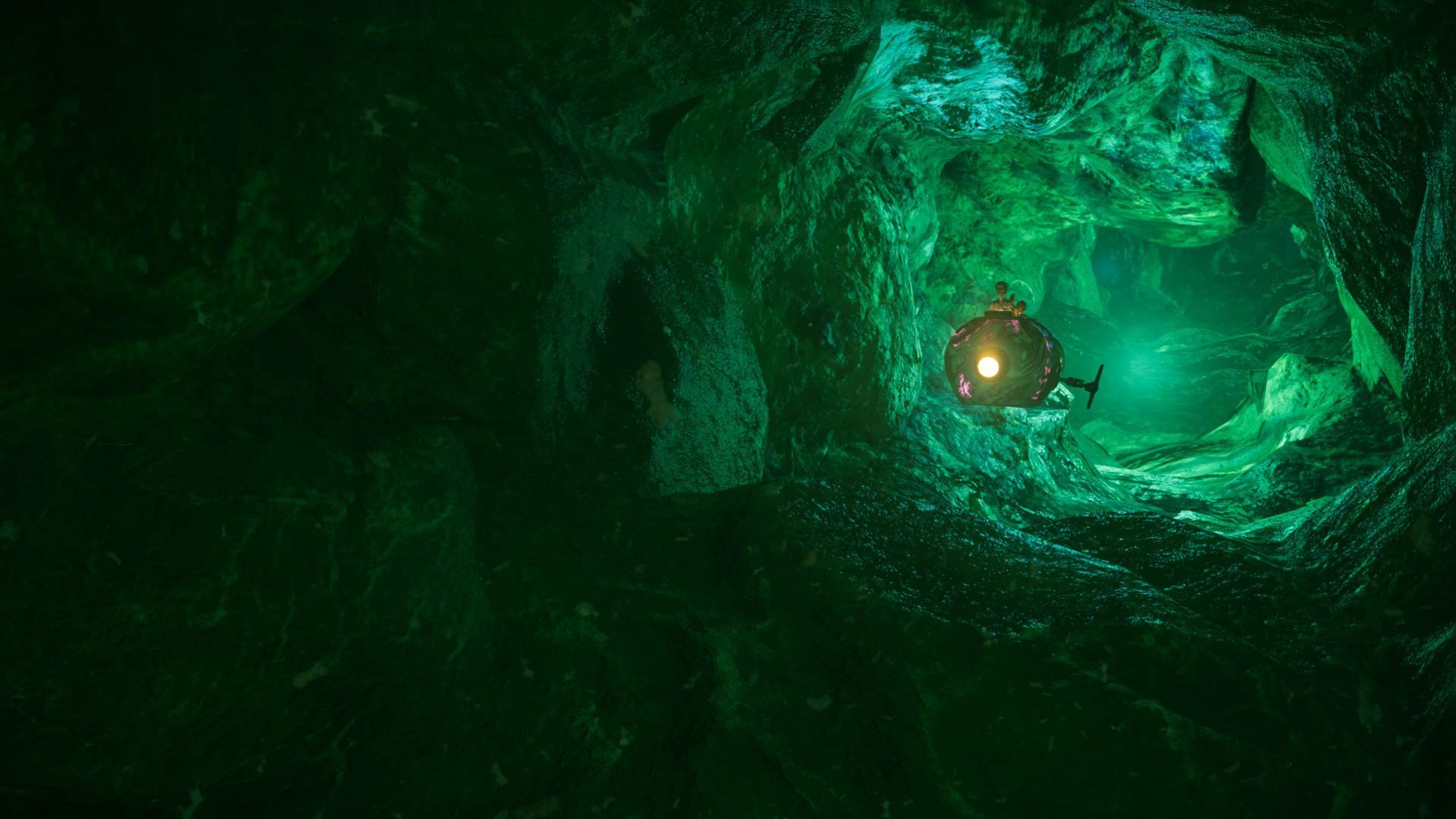
That said, Harold is not completely oblivious to his situation. Being well-mannered does not always mean he is dumb. On the contrary, there are times he picks up on people's animosity and replies snarkily under the guise of his unending generosity. Yes, he is trying to do his best while being ill-equipped to do so, but he is not one to be walked all over at all times.
But what truly sets Harold Halibut apart is its ability to provoke thought. Through Harold's interactions with the people around him, players are treated to moments of heartwarming friendship, existential doubt, and profound self-discovery. It's a testament to the game's characterization that every interaction feels so relatable.
Granted, there is a lot of walking across corridors doing favors which can drag along by the latter part of the game. There must be a mindset of patience for the player to truly appreciate the work that was put into this game. The reward after completing a "quest" from the to-do list is of course the interaction which almost always will provide a push forward in the narrative, or at least a chuckle at seeing how things unfold. That alone is motivation enough to see Harold Halibut transport along the tube for the nth time to see the rapturous ending.
Harold Halibut is best savored in short bursts, much like an acclaimed limited series. As with any game, it is possible to rush it, skip side activities, and go straight to the end, but that would be missing the point. To take the time to process each character interaction to the fullest, all of the 6 chapters in their bittersweet glory. Basically, you need to stop and smell the roses.
An air of wondrous mystery permeates the atmosphere of Harold Halibut. Weird, unique, and groovy, it can be easily argued that it is one of those definitive indie experiences. A proposition too out there for big AAA studios, but so fiercely independent that the people who made it carried on designing this video game with a passion like none other.
When an ambitious concept is as perfectly executed as it is here, it is imperative to celebrate the creative achievement that it truly is. Not only for the lasting emotion a superbly-told story gives but for all the artistic disciplines that coalesced to form this work of art. Harold Halibut is a feat rarely seen where a comedic sci-fi journey of self-discovery triumphs in leaving a mark that you will always treasure.
Contributor, NoobFeed
Verdict
Harold Halibut is a feat rarely seen. Not only for the lasting emotion a superbly-told story gives but for all the artistic disciplines that coalesced to form this work of art.
100
Related News
No Data.

